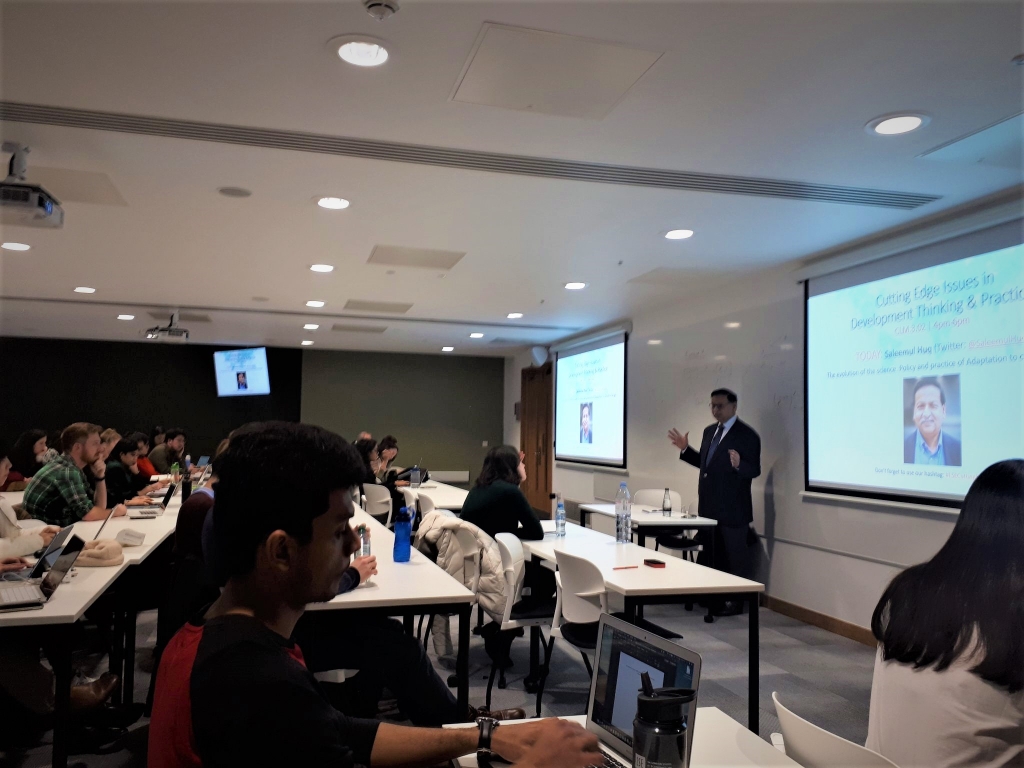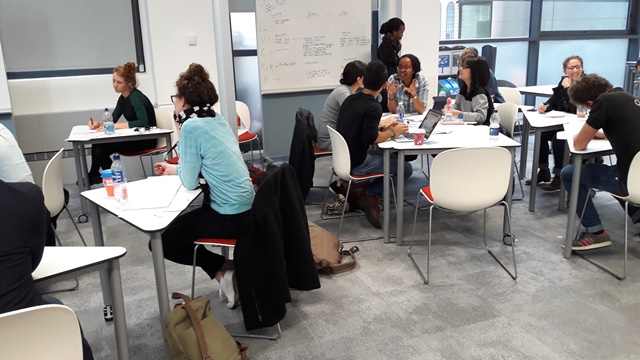MSc Development Management student, Michelle Nazareth, reflects on a Cutting Edge Issues in Development guest lecture from Saleemul Huq, Senior Fellow in the Climate Change Group at the International Institute for Environment and Development, and, the director of the International Centre for Climate Change and Development, about the science and politics of climate change.

The last lecture in the cutting- edge series appropriately tackled one of the most relevant issues of our times: climate change. As an expert on climate change negotiations and adaptation from the perspective of least developed countries, Saleemul Huq was able to give us insights into the LDC’s response to the challenge of global warming and the action taken so far. Huq’s lecture was a frank yet optimistic take on the possibilities of the global response to climate change in a world that is becoming increasingly politically divided. The focus was on the science behind the three eras and the current state of climate policy.
The first era began with the publication of the first assessment report in 1990 by the Intergovernmental Panel on Climate Change (IPCC). The report highlighted the concern among scientists about the problem of climate change and its possible exacerbation in the absence of global efforts. Hence, the first phase was very much focused on mitigation or the process of reducing greenhouse gas emissions. The third Conference of Parties (COP) at Kyoto in Japan (1997) was hailed as a milestone in this attempt because it laid down the specific targets that developed countries had agreed on to reduce their emissions. Interestingly, the United States never ratified this agreement either!
The second era that Huq spoke about was one with a new focus on adaptation. Realizing that countries had failed to reduce emissions sufficiently and that there would be certain unavoidable impacts of climate change, the importance of adapting to the inevitable gained attention. However, the challenge (which has not yet been overcome) is the fact that not everyone is affected equally and the poorest and the most vulnerable groups who are being affected have very little bargaining power at the major climate meetings. Ironically, these are also all countries that have contributed the least to climate change in terms of historical emissions. The second era saw many new actors joining in the global fight against climate change including aid agencies such as USAID and DFID as well as local actors in developing countries.
Finally, the last decade has seen the emergence of a new and fundamentally different era, where the world is actually seeing the impacts of global warming. The increasing numbers of wildfires, rising sea levels and intense heat waves have made it difficult to deny the problem of climate change. The new era has been defined by the participation of a much wider group of people, especially young people who have understood the issue as one of social justice. Our failure to deal effectively with the problem has resulted in loss and damage from climate change- a term used to signify the impacts that global warming is having on developing countries. Given this widespread awareness, there are reasons to be optimistic about the future of climate change policy. However, Huq stressed that there is a pressing need to move from negotiation to action, through climate meetings like the COP. In addition, giving least developed countries a huge say in this process can ensure that the impact of climate change is not felt so severely in the most vulnerable regions of the planet.
Saleemul Huq’s lecture was also very practical based, with numerous examples of efforts to improve the adaptive capacity of people including Bangladesh’s pioneering efforts and an international proposal for a carbon tax included in the price of airline tickets. But Huq’s speech was above all inspirational- an encouraging and motivating approach to one of the most serious problems of collective action that the world has ever faced.
Michelle Nazareth is an MSc Development Management student from India. She has a Bachelor’s degree in Sociology, Psychology and Economics from Christ University, Bangalore. Her research interests include adaptation and climate change, urban planning and the informal sector.
The views expressed in this post are those of the author and in no way reflect those of the International Development LSE blog or the London School of Economics and Political Science.





